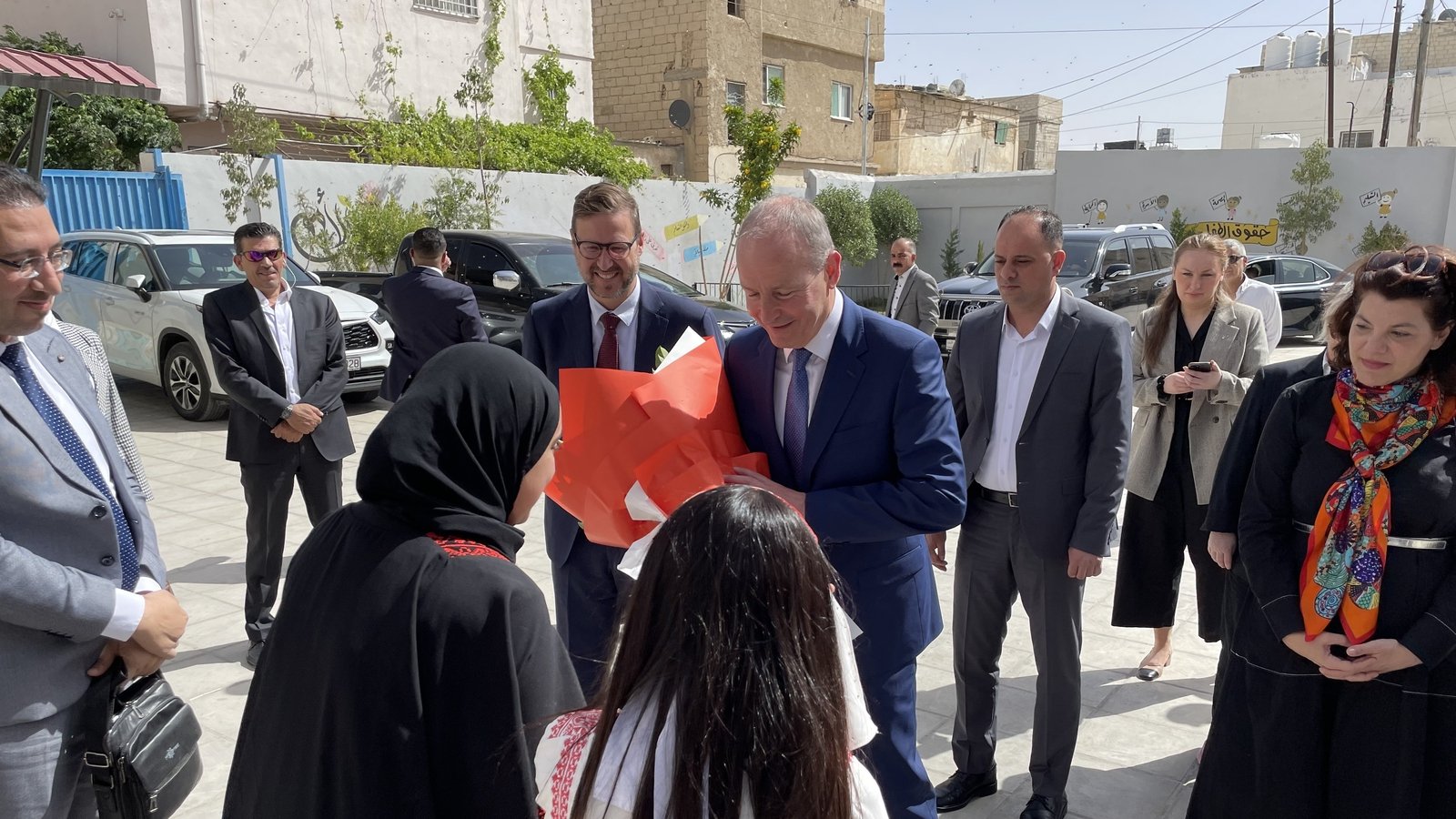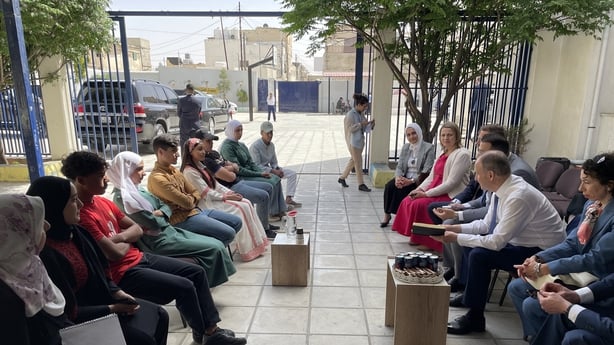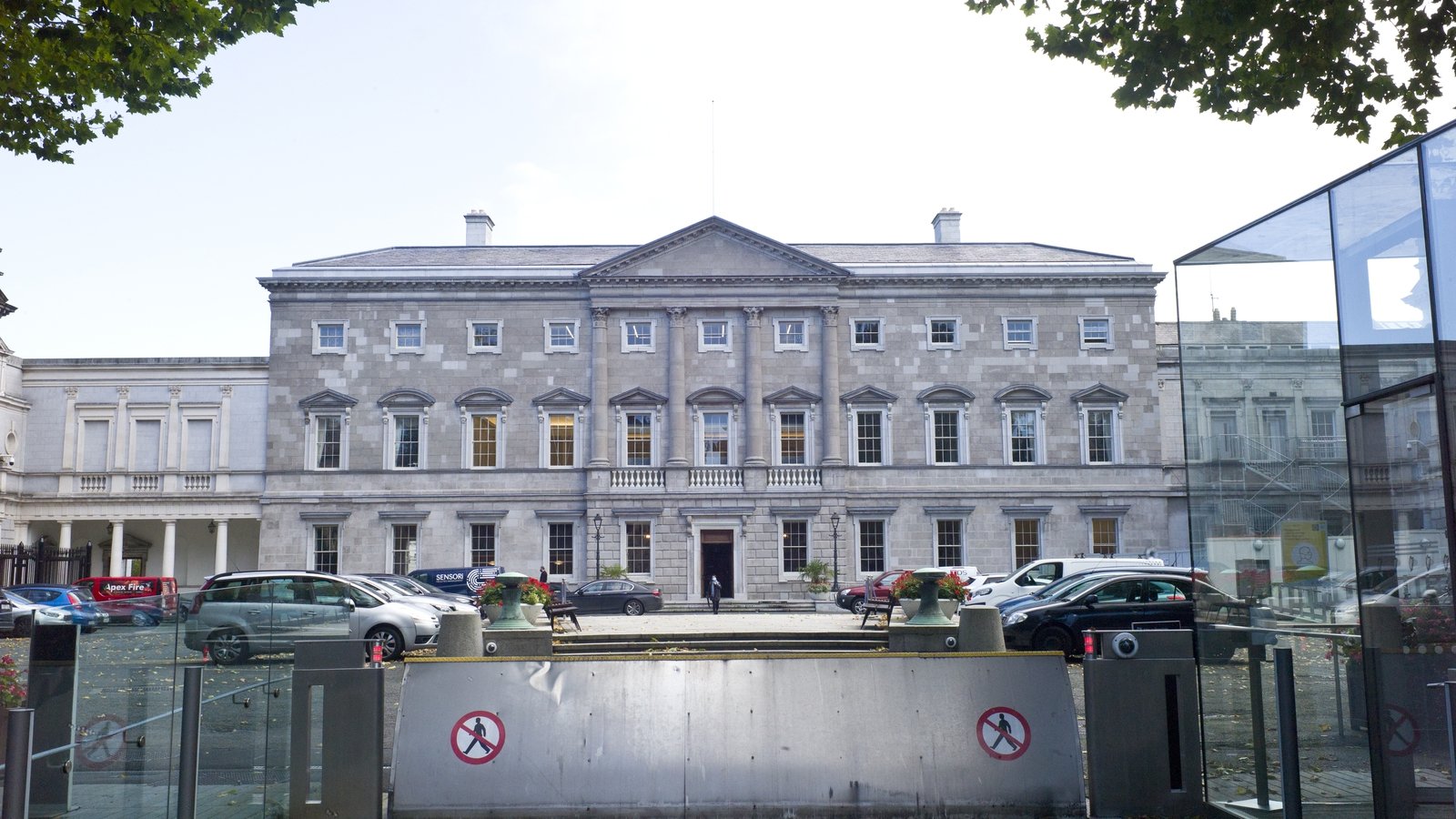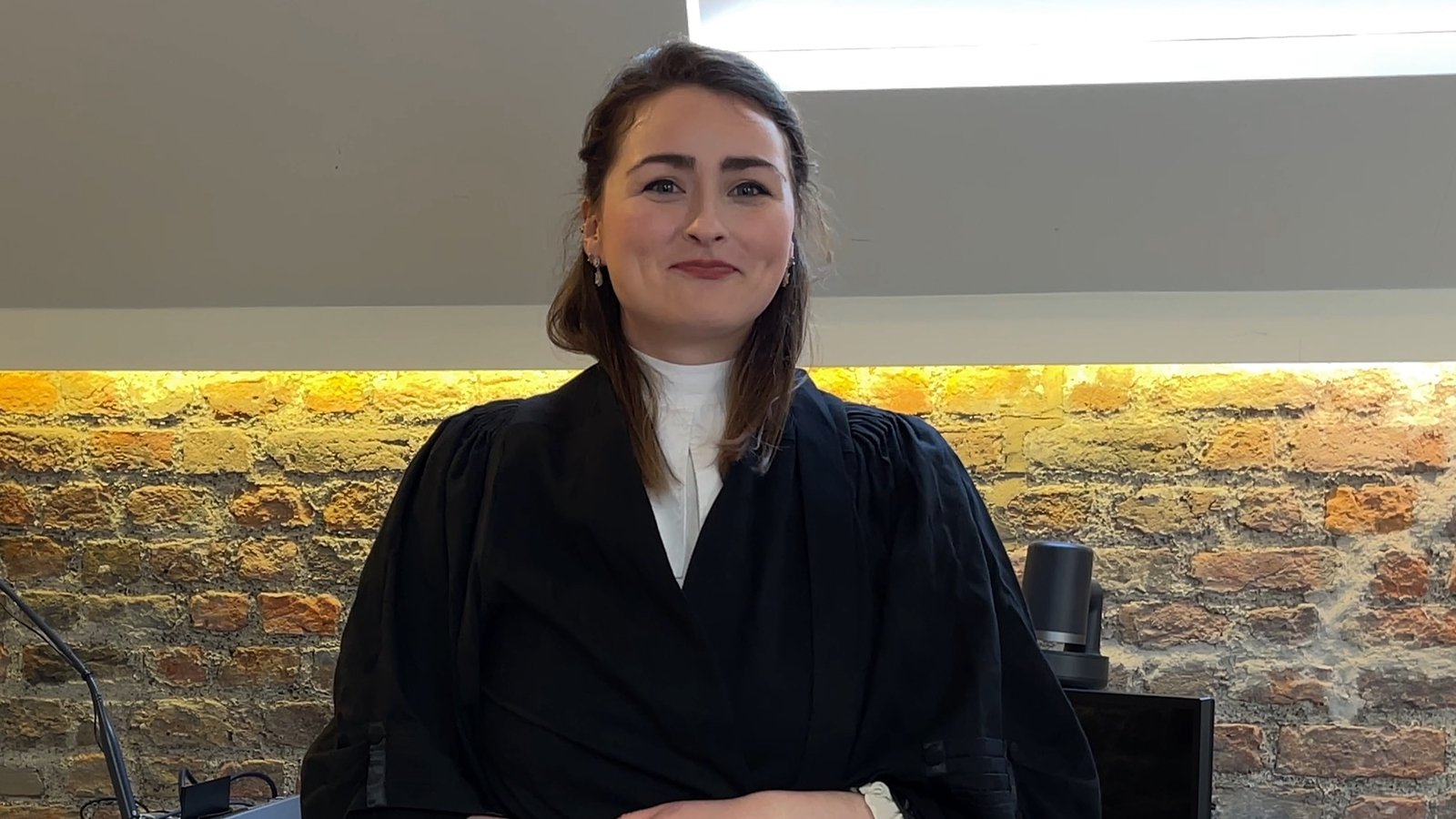Tánaiste visits refugee camp during Middle East trip

Tánaiste and Minister for Foreign Affairs Micheál Martin has visited a United Nations Palestinian refugee camp south of the Jordanian capital Amman as he concludes a two-day visit to the Middle East.
Mr Martin was welcomed at an elementary school for girls at the Talbieh camp, home to some 10,000 Palestinians and also visited a UNRWA-run medical facility.
He has arrived at the Ministry of Foreign Affairs for a meeting with the Jordanian Deputy Prime Minister and Foreign Minister Ayman Safadi.
At the school, UNRWA director for external relations in Jordan Tamara Alrifai told RTÉ News the provision of education for some 1,300 pupils at the school had been under significant pressure once funding was cut, on foot of Israel’s allegations about UNRWA staff.
“There was a real concern of funding drying up after 18 government donors, partners of UNRWA, decided to suspend funding following allegations against 12 staff members.
Read more: Orders for new evacuations as strikes in Gaza intensify
“We continue to be very concerned about the lack of funding for an agency that, particularly in Jordan, directly contributes to stability.
“We have enough funding to last us until the end of the month of June, which coincides with the end of the school year, but we need more financial visibility in order to be able to maintain, not just education, but also healthcare [and] social protection to Palestinian refugees in Jordan and in the region,” she said.

Ms Alrifai said UNRWA fully accepted the recommendations of the Colonna report on UNRWA published on Monday, including the concerns about agency staff maintaining neutrality on the Israel-Palestinian conflict.
“We embrace them, and we are already working on implementing them. We took note of the concerns about UNRWA as a huge bureaucracy [with] 32,000 staff.
“It takes a lot to get everybody fully compliant with neutrality. But the report rightly confirms that UNRWA does have sturdy internal system guidelines, procedures and mechanisms to ensure that our safeguards against violations of neutrality are in place.
“It’s a matter of improving and continuously improving is a commitment that we do have,” she said.
She said children at the school had been affected by the war in Gaza, in particular, because many of them have relatives in the enclave.
“The children here go through a lot of interactive, play-like sessions to help them cope with what they see on TV, but what their families also tell them.
“Many of the children in our schools have relatives in Gaza because this is where they’re originally from. Teachers are very well equipped to deal with the psychological impact and to help children overcome them.

“But that is also a reason why funding to run must continue. So that psychosocial support doesn’t become a luxury but continues being part and parcel of our education,” Ms Alrifai said.
The German government has announced it plans to resume cooperation with UNRWA in Gaza following the Colonna report, according to the foreign and development ministries.
The Colonna review of the agency’s neutrality on Monday concluded Israel had yet to back up its accusations that hundreds of UNRWA staff were operatives in Gaza terrorist groups.
The German ministries urged UNRWA to swiftly implement the report’s recommendations, including strengthening its internal audit function and improving external oversight of project management.
“In support of these reforms, the German government will soon continue its cooperation with UNRWA in Gaza, as Australia, Canada, Sweden and Japan, among others, have already done,” said a statement.
Mr Martin welcomed Germany’s decision to resume funding to UNRWA.
He was speaking during a news conference in Jordan with his counterpart Ayman Safadi.
“I warmly welcome Germany’s decision in terms of restoring and renewing and continuing aid to the Middle East and Gaza,” he said.
He added that this week’s Colonna report on the governance of UNRWA indicated that the agency performed an extraordinary service in a difficult set of circumstances and that it was “irreplaceable and indispensable”.
The Tánaiste said Germany was a major donor to the Palestinians despite its “particular” perspective on the Middle East conflict.
He added: “I’ve never doubted Germany’s commitment to the humanitarian question.”
Mr Martin said he would raise the issue with EU colleagues that in future, any sudden revelations about UNRWA or other humanitarian organisations would not meet with what he called a knee-jerk decision to freeze humanitarian funding.
Mr Safadi paid tribute to Ireland for leading efforts at EU level to get a group of countries to recognise Palestinian statehood.
He said the position of regional Arab countries was to move away from previous models of trying to negotiate a two-state solution and instead adopt a recognition of Palestinian statehood first, then work back to put the elements of that in place.
Mr Safadi said this was designed to avoid Israel having a veto over the existence of a Palestinian solution.




